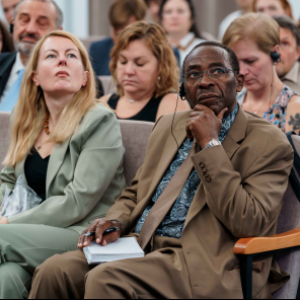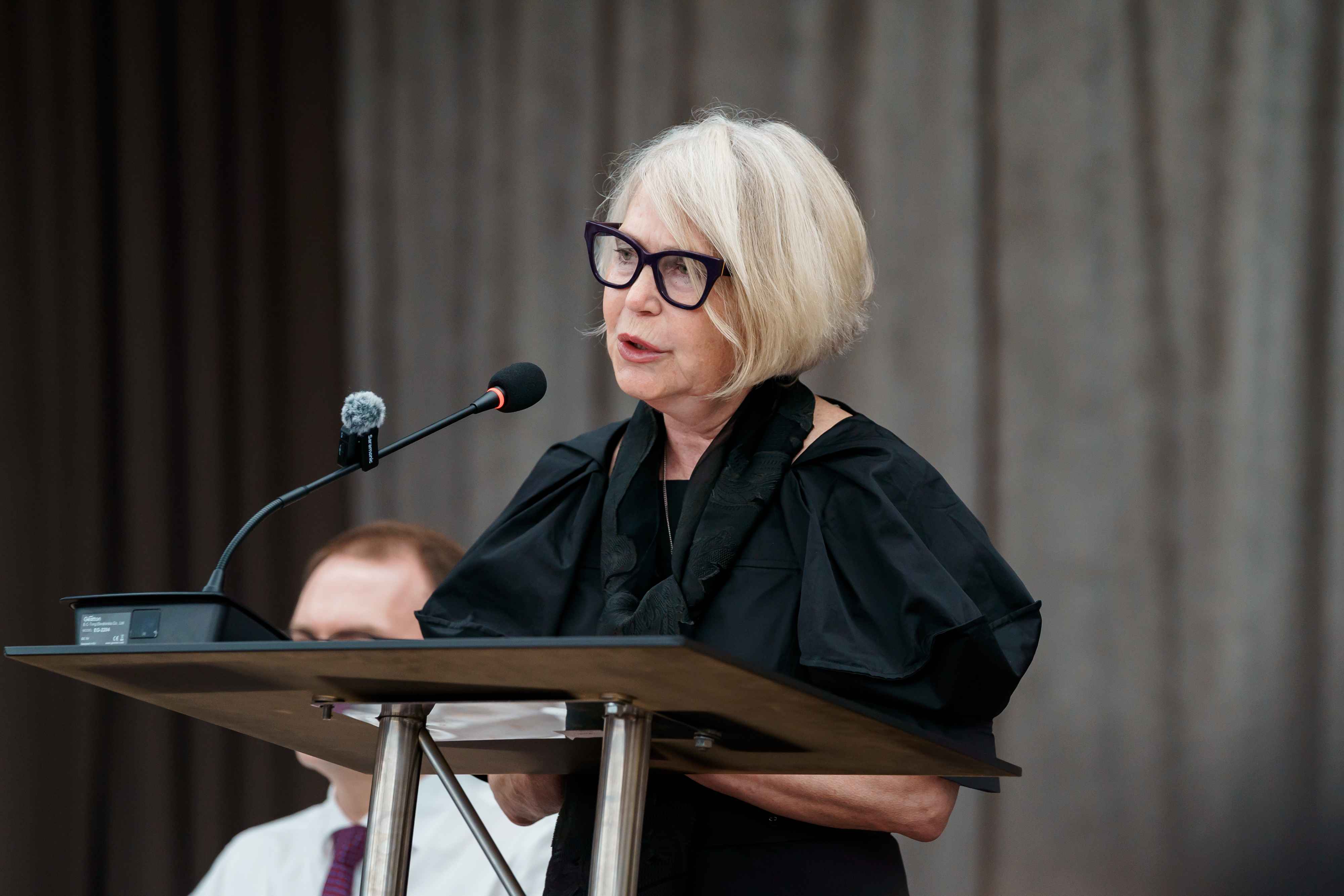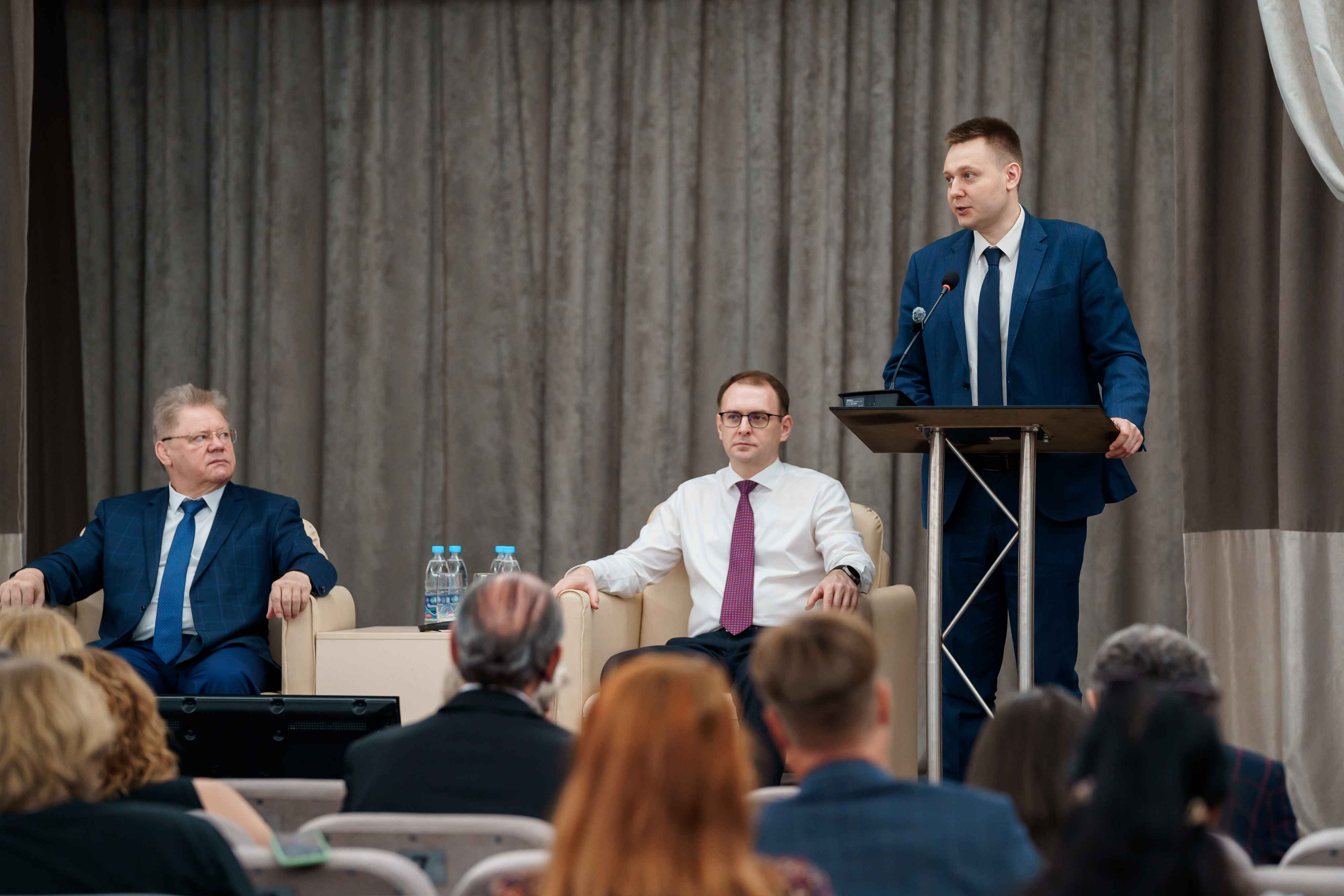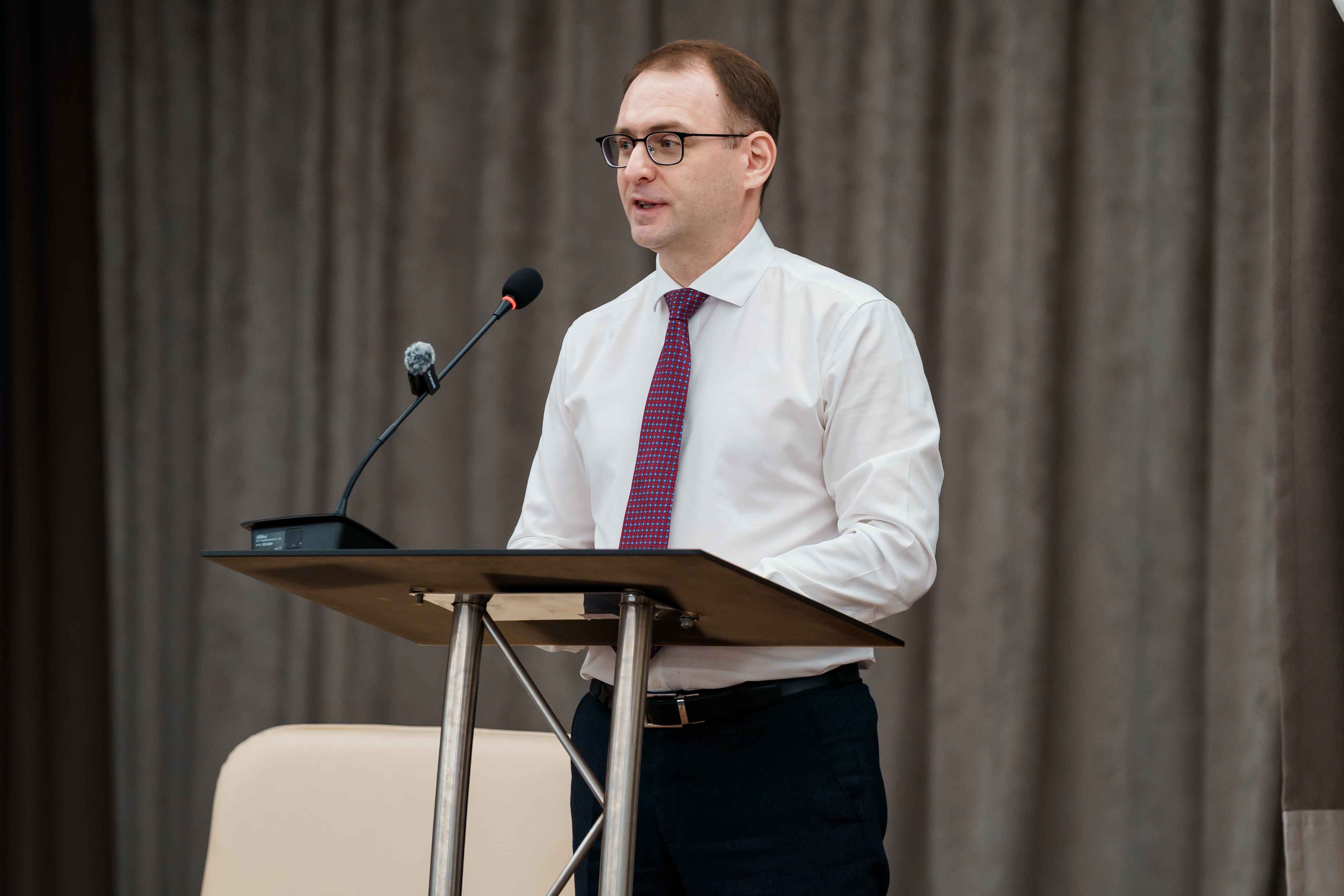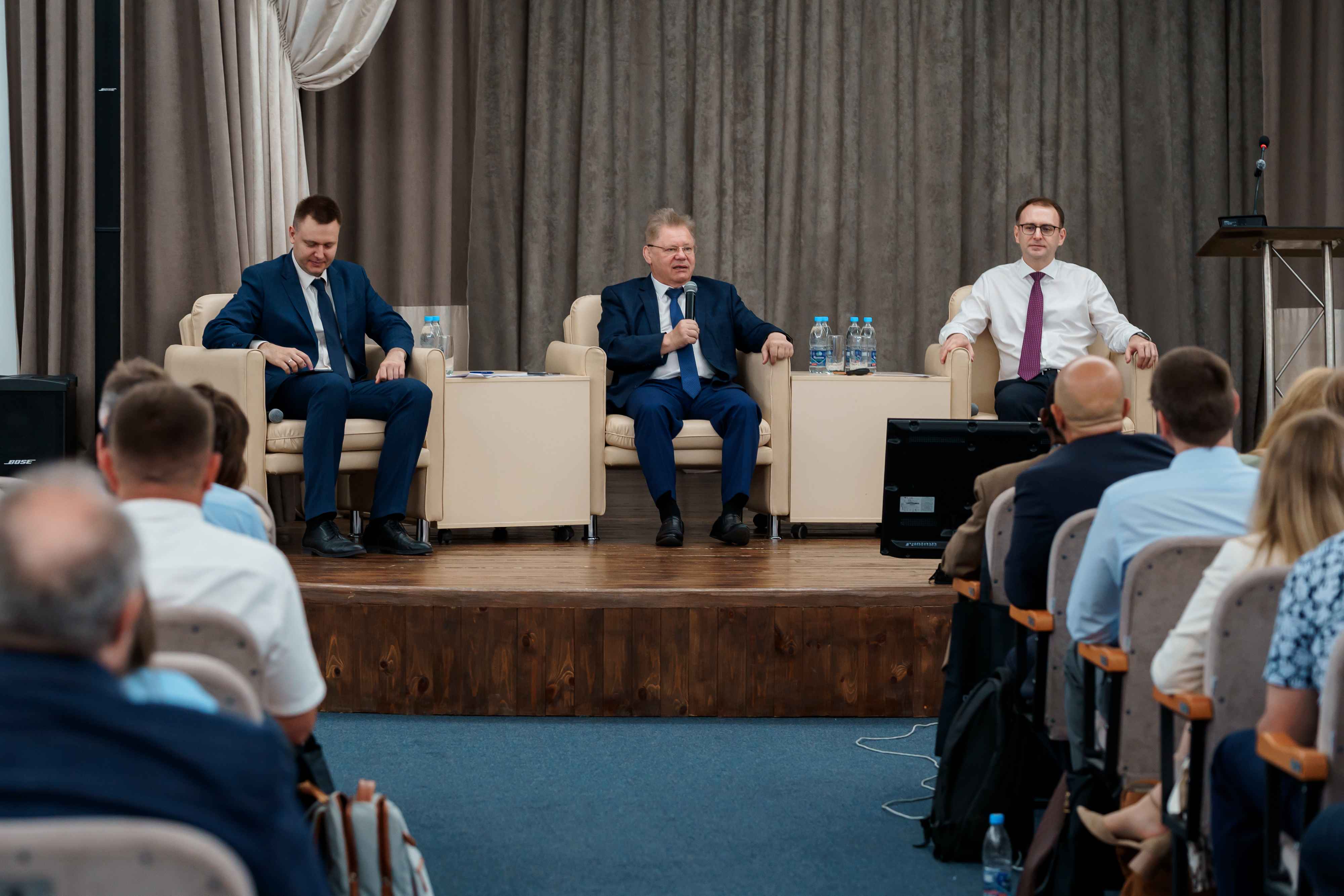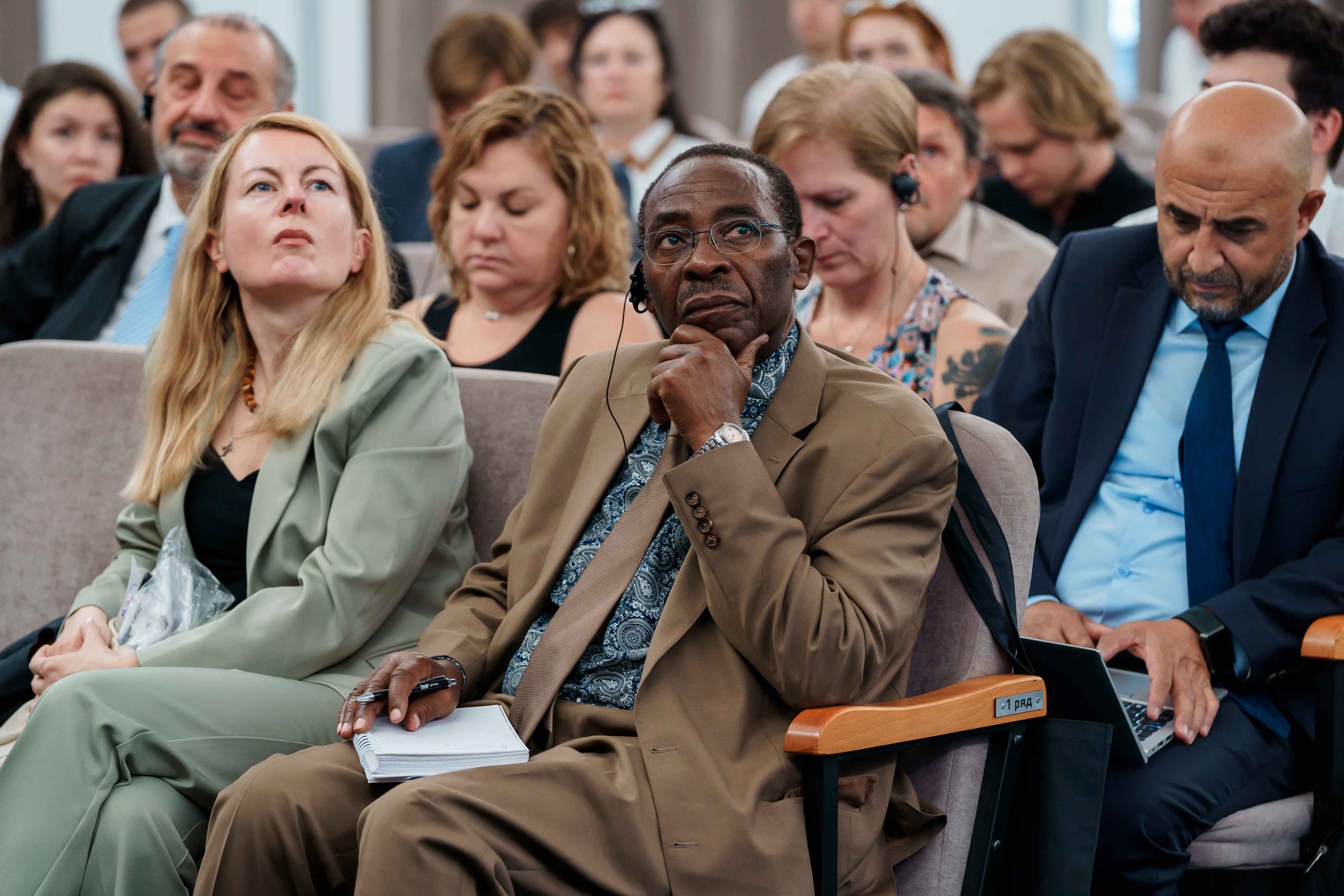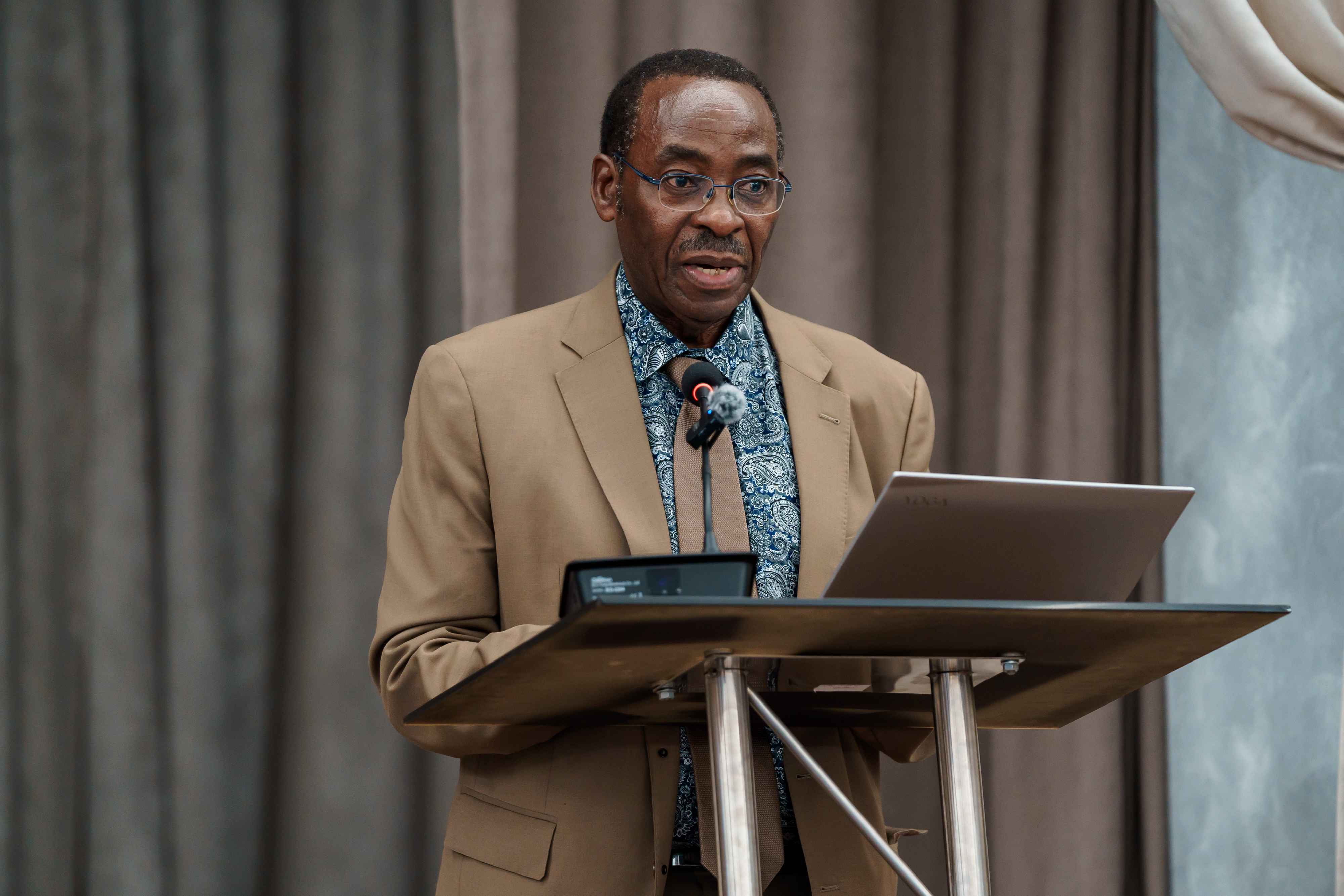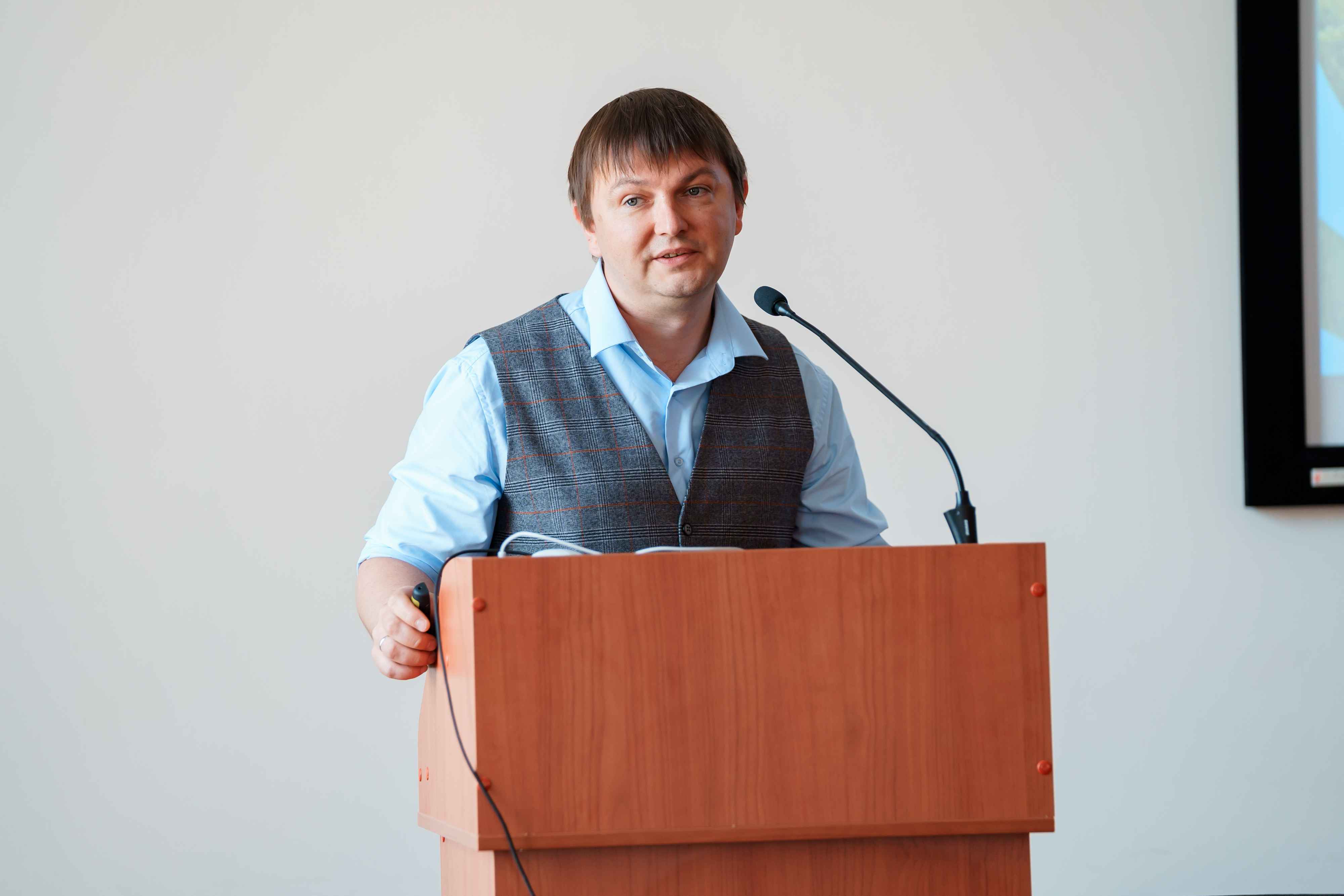How to stop the global problem of degradation, restore soil health using nature-like resource-saving technologies, manage the microbiome, and develop the agricultural carbon market in Russia and BRICS, EAEU, and SCO countries – these issues were actively discussed at the 10th International Congress "Climate, Soil Fertility, Agrotechnologies".
The Congress took place in Russia's space capital as part of the project to create and operate the "Agro Engineering" carbon polygon, implemented by Samara University.
Participants from 8 countries – China, Brazil, India, Egypt, Kenya, South Africa, Uzbekistan – and more than 37 Russian regions, including representatives of leading scientific and educational institutions, federal and regional authorities, industry unions, public movements, venture funds, banks, and agribusiness, totaling over 300 people, discussed joint actions to develop and harmonize legislation for implementing climate projects, modern methods for assessing the health of agroecosystem soils, and best practices in agribusiness to achieve sustainable development goals.
For the first time, the Congress included the theme of preserving water resources and the role of water bodies in climate change.
Congress Organizers: Russian Academy of Sciences, Russian Chamber of Commerce and Industry, National Conservation Agriculture Movement, "St. Petersburg Dialogue" Forum, Samara University, Russian Presidential Academy of National Economy and Public Administration (RANEPA) – with the support of the Russian Ministry of Science and Higher Education (under Project FSSS-2024-0022), the Russian Ministry of Agriculture, the Agency for Strategic Initiatives (ASI), and the Government of Samara Region.
The Congress is supported by the Brazilian Agricultural Research Corporation (EMBRAPA), acting as the foreign partner.
Over 50 reports were presented (in-person and online), alongside expert sessions, round tables, and strategic discussions on key directions for developing the agricultural and climate agenda.
The Congress was opened by Pyotr Chekmarev, Vice President of the Russian Academy of Sciences (RAS), Chairman of the Russian Chamber of Commerce and Industry Committee on Agro-Industrial Complex Development, and Academician.
"Our University is the operator of Russia's first agricultural carbon polygon, 'Agro Engineering,' where we study greenhouse gas emission and absorption processes using the most advanced technologies and equipment developed by our scientists. These include compact hyperspectrometers and gas chromatographs, satellite imagery, and drone imagery. We are working on artificial intelligence technologies for data processing, as well as the highly relevant topic of unmanned aerial systems," emphasized Vladimir Bogatyrev, Rector of Samara University, addressing the Congress participants.
Mark Shleenkov, Minister of Science and Higher Education for Samara Region, expressed confidence that the work of the agricultural carbon polygon would yield more than just publications in high-impact journals.
"By 2027, we expect the creation of a National Protocol for measuring, monitoring, and verifying changes in soil carbon stocks and greenhouse gas emissions. This will allow us to begin forming a market for carbon units in our country to achieve a sustainable carbon balance," noted the Minister.
Session moderators included industry leaders and leading ESG representatives: Galina Yu. Fomina, Director of the International Center for "Financial Diplomacy" at RANEPA; Armen Tadevosyan, Vice President for ESG at the Financial and Business Club (FFB) of RANEPA; Igor Abakumov, Founder of the weekly newspaper and media group "Peasant Vedomosti"; Sergey Kosogor, Co-Chair of the SCO Business Council Working Group on Agro-Industrial Complex (Russian Part); and Evgeny Truflyak, Head of the Center for Forecasting and Monitoring in Precision Agriculture at Kuban State Agrarian University (KubSAU).
A field session was held at the territory of the "Agro Engineering" agricultural carbon polygon and its industrial partner, Orlovka-AIC LLC, showcasing the polygon's project areas, ongoing research, and implemented nature-like technologies and practices of soil-protective, resource-saving agriculture.
Orlovka-AIC LLC's pioneering Russian agricultural climate project received a certificate for issuing 40,924 carbon credits into circulation, ceremoniously presented by Oksana Gogunskaya, General Director of Kontur JSC.
Hafiz Muminjanov, Chairman of the UN Food and Agriculture Organization (FAO), highly praised the organization of the Congress, its interdisciplinary nature, the relevance of the topics discussed, and their alignment with the FAO's "One Health" concept.
"No-tillage was created and is promoted by farmers, who will continue to work according to its principles themselves. All of us – scientists, politicians, and the public – need to actively help them," emphasized the FAO representative.
Ivan Vasenev, Head of the Ecology Department at the Russian State Agrarian University - Moscow Timiryazev Agricultural Academy (RSAU-MTAA), Professor, highlighted the active participation in the Congress discussions by foreign participants, practicing farmers, young scientists, specialists, students, and the high level of media coverage: "The most favorable conditions have been created for scaling up the soil- and carbon-saving farming technologies, agroecological monitoring, and restoration of anthropogenically degraded soils presented at the Congress, involving interested investors with the active support of government structures and public organizations."
A fruitful meeting of the Agricultural Alliance of BRICS, EAEU, SCO, and Partner Countries took place within the Congress framework, where all Russian and foreign participants unanimously expressed support for joint work to create a unified agricultural carbon market and develop mechanisms for sustainable soil resource management.
Dmitry Fedorov, Director of Projects in the "Ecology and Climate" Division of the Agency for Strategic Initiatives (ASI), highly valued the relevance of creating a supranational structure that unites science and farmers and helps adapt territories and entire countries to climate change: "The Agricultural Alliance will be the custodian of methodologies and practices with unified approaches, so that we are not talking about the same thing using different words, and so that we enhance, not lose, the environment. ASI has many tools through which we can promote such sustainable agricultural initiatives."
Dmitry Fedorov is supported by Elena Natarova, Marketing Director of Terra Tech JSC (part of Roscosmos State Corporation): "This is an initiative of international scale. Such alliances are needed to protect our collective interests and create a significant global voice."
Lyudmila Orlova, President of the National Conservation Agriculture Movement and Congress Co-Organizer, stated: "Amid the global soil and climate crisis, the mission of the 10th Anniversary Congress is to develop domestic and international dialogue on the implementation of effective nature-like agrotechnologies, best practices for restoring and enhancing soil fertility, preserving the world's natural heritage and rural traditions, alongside the integration of next-generation technologies."
 RU
RU  EN
EN  CN
CN  ES
ES 